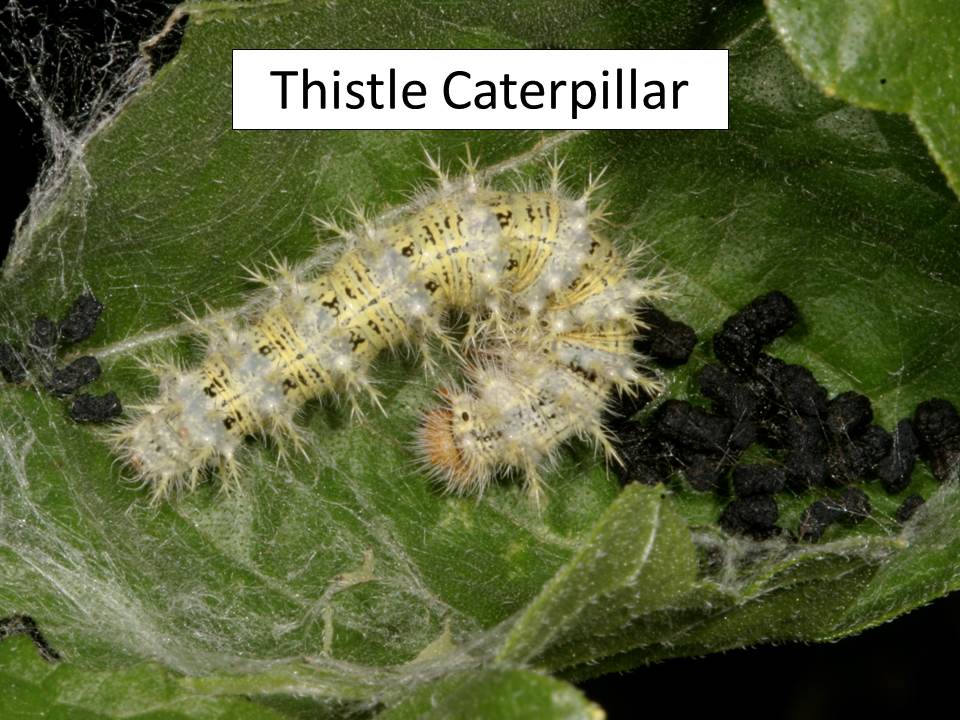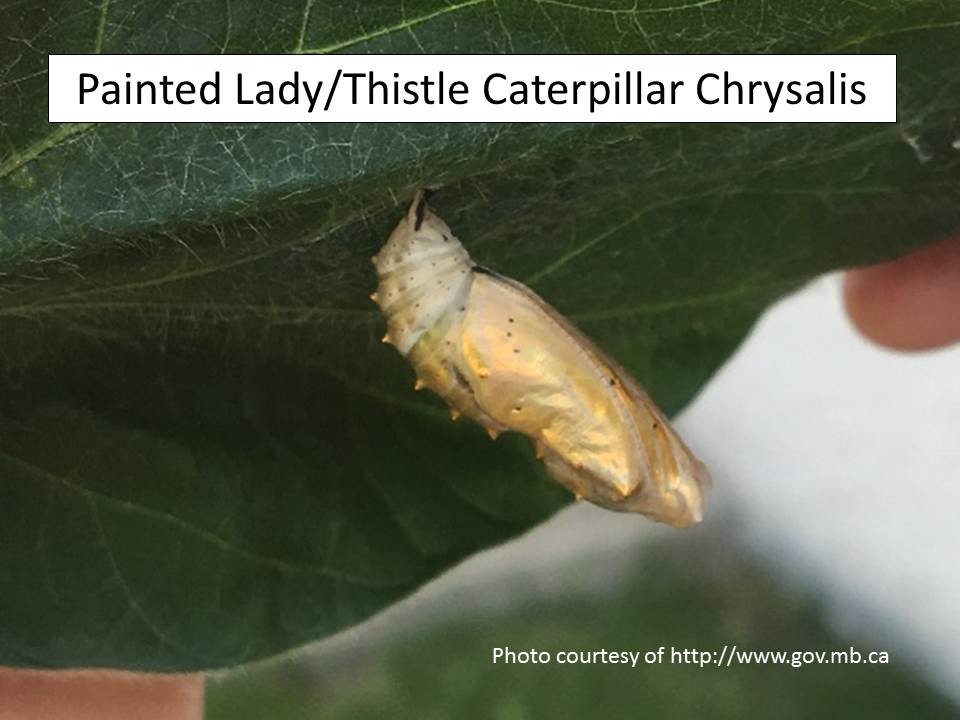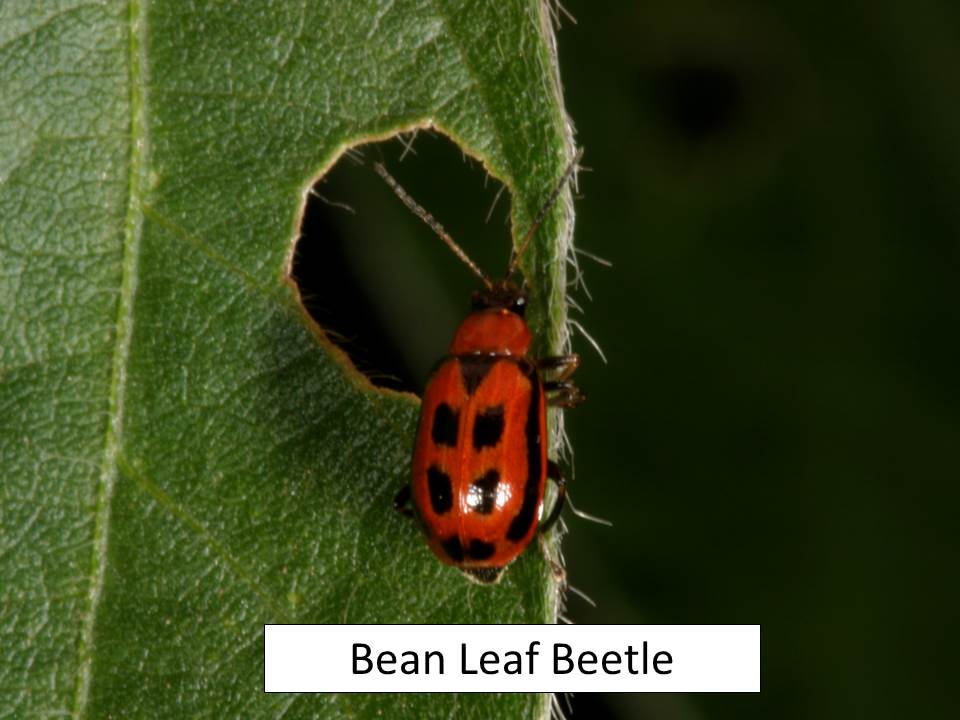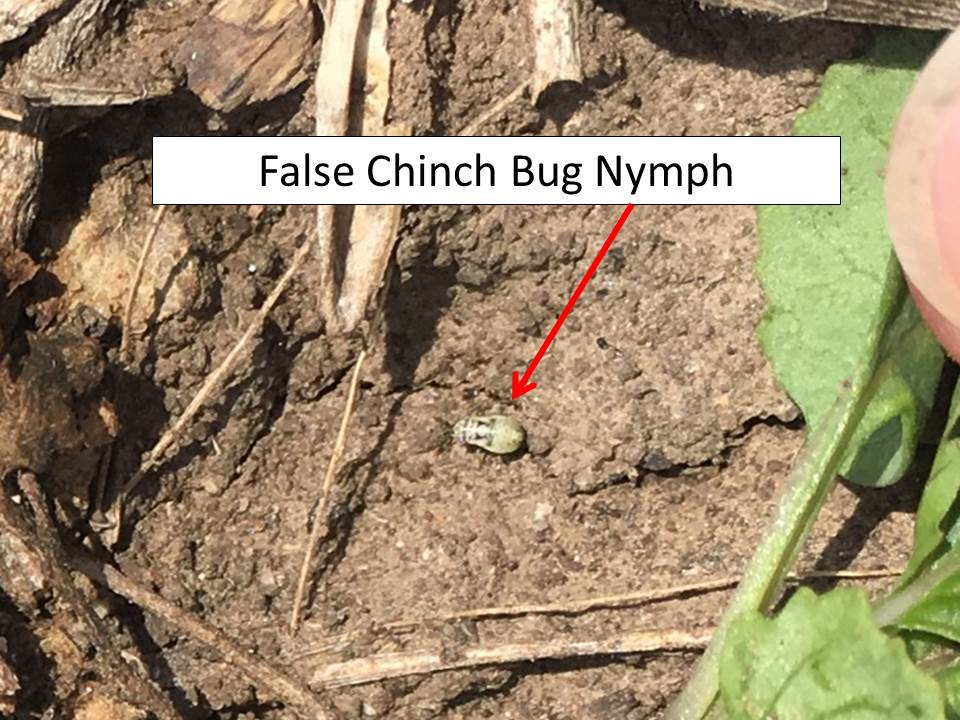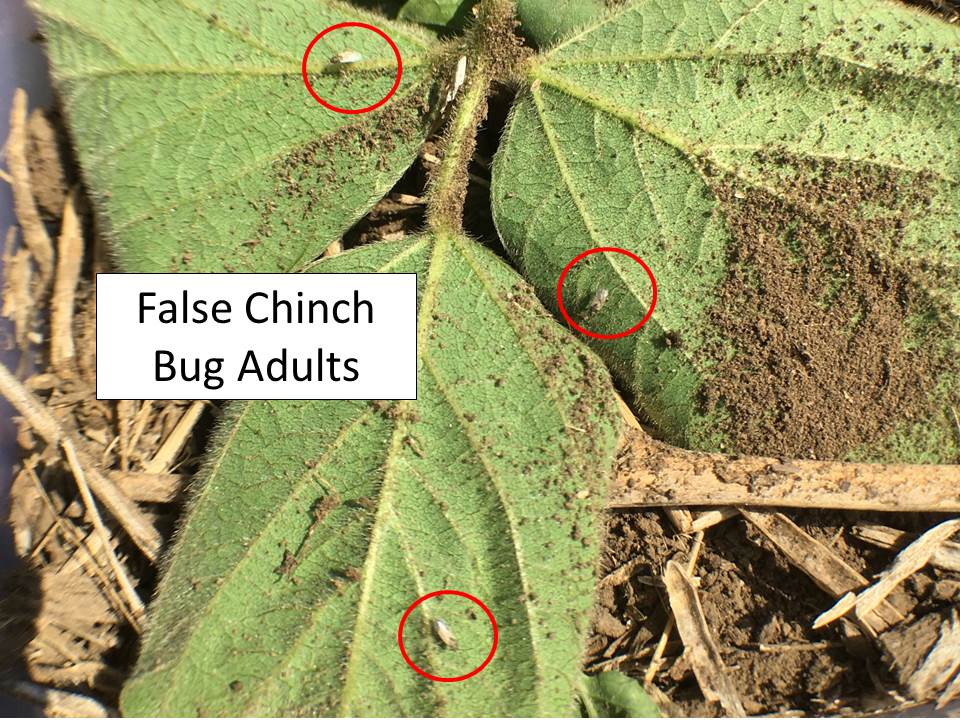–by Dr. Jeff Whitworth and Dr. Holly Schwarting
(thistle caterpillars, painted lady/thistle caterpillar chrysalis, garden webworm, bean leaf beetle, false chinch bug)
Soybeans seem to be the crop getting the most attention throughout north central Kansas. Thistle caterpillars have been pupating in their unique little chrysalis that can be lime green to brownish in color and is often found hanging on the underside of leaves within the soybean canopy.
Some fields, especially in areas north of I-70 Highway, have many thousands of these painted lady butterflies flying around, often focused around the borders of soybean fields. These fields are where the thistle caterpillars have been feeding and pupating. The orange, black, and white spotted butterflies will be depositing eggs in soybeans, sunflowers, and many different weed species and the small spiny larvae will then begin feeding. So, sampling in soybeans and sunflowers should continue for about the next three weeks.
Webworm larvae are feeding on soybean leaves and bean leaf beetle adults are starting to emerge and both are adding to overall defoliation in soybeans. For management decisions regarding soybean defoliators, please refer to the KSU Soybean Insect Management Guide: https://www.bookstore.ksre.ksu.edu/pubs/MF743.pdf
False Chinch bugs have also been reported from soybeans. These bugs are often mistaken for chinch bugs, hence the name, but unlike chinch bugs, they will sometimes feed on soybeans after their natural weed hosts are killed. However, this feeding is usually of little consequence. Although these bugs often congregate by the hundreds and thousands, they usually disperse within a few days with no tell-tell signs that these huge numbers were ever there.
